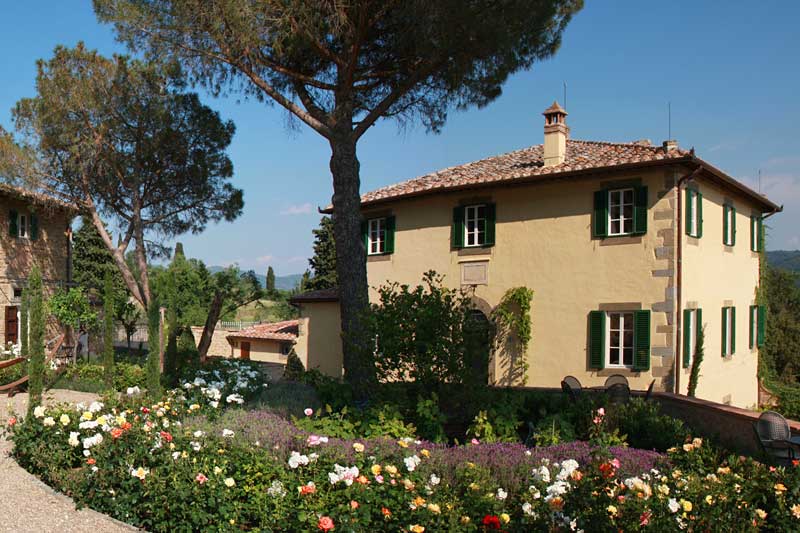Dreaming of owning a property in the breathtaking landscapes of Italy? Clients often ask me about the possibility of non-Italian nationals, both residents and non-residents, getting a mortgage to purchase an Italian property. Whether it’s a charming villa in Tuscany or a cozy apartment in Rome, the prospect of owning real estate in Italy is alluring. In principle, non-Italian nationals can obtain a mortgage in Italy, although in recent years, bank policies on lending to non-Italians have been tightened. However, despite these changes, acquiring a mortgage as a non-Italian national, whether you are a resident or non-resident, is still possible. In this blog post, I will explore the possibilities and shed light on the process of obtaining mortgages for non-Italian nationals. So, if you’re ready to take the plunge and invest in your Italian dream, read on!
Understanding the Italian Mortgage Market
To navigate the specifics of mortgages for non-Italian nationals, it’s essential to grasp the overall landscape of the Italian mortgage market. Italy offers diverse mortgage options tailored to different financial situations. While bank policies on lending to non-Italian nationals have become stricter, opportunities still exist for both residents and non-residents.
Common mortgage types available to non-Italian nationals include:
- Fixed-Rate Mortgage: Offers stability with an unchanged interest rate throughout the loan term.
- Adjustable-Rate Mortgage: Begins with a fixed-rate period, then adjusts based on market rates.
- Variable-Rate Mortgage: Tied to an interest rate index, fluctuating based on market conditions.
- Interest-Only Mortgage: Involves lower initial payments covering only the interest, suitable for lower upfront costs or investment purposes.
- Buy-to-Let Mortgage: Designed for investment properties, considering potential rental income.
Careful evaluation of terms, conditions, and interest rate structures is vital for non-Italian nationals. Consulting with a specialized mortgage advisor familiar with non-Italian nationals can provide valuable insights for selecting the most suitable option aligned with their financial goals.
By understanding the available mortgage types, non-Italian nationals can make informed decisions, choosing the option that best suits their needs, preferences, and long-term financial plans.
Mortgages for Non-Italian Nationals: Eligibility Criteria
Banks carefully assess factors such as income stability, credit history, property location, and residency status when considering mortgage applications. As a non-Italian national, it is crucial to provide relevant documentation, including proof of identity, income statements, and employment details. To navigate the mortgage application process successfully, it is advisable to seek the guidance of a knowledgeable mortgage advisor specializing in assisting non-Italian nationals.
For instance, let’s consider the case of a US citizen who is not a resident in Italy but desires to purchase a property here. To secure a mortgage, the US citizen must demonstrate income stability, a positive credit history, and carefully select a suitable property. By fulfilling these requirements, the US citizen can improve their chances of obtaining a mortgage in Italy and turning their Italian property ownership aspirations into reality.
The Benefits of Obtaining a Mortgage in Italy
Acquiring a mortgage in Italy as a non-Italian national, whether you are a resident or non-resident, offers several advantages. Firstly, it allows you to leverage your investment by spreading the payment over a more extended period. This can provide greater financial flexibility and ease the burden of a large upfront payment. Secondly, owning a property in Italy may be an excellent opportunity for rental income, particularly in popular tourist destinations. The Italian real estate market attracts millions of tourists every year, and by renting out your property, you may be able to generate an income stream.
Mortgages for Non-Italian Nationals: Navigating the Application Process
Securing a mortgage as a non-Italian national, whether resident or non-resident, follows a step-by-step process.
- Gather required documentation: Collect proof of identity, income statements, employment details, residency status, and property information. Work closely with your mortgage advisor to ensure all necessary information is included.
- Submit your application: Provide your completed application to the mortgage provider for review. They will assess your financial solvency based on income stability, credit history, and property location.
- Property compliance check: A surveyor inspects the property’s condition and value, submitting a detailed report to the mortgage provider. Meeting their requirements progresses the process.
- Title deed checks: Appoint a notary to examine the property’s legal status, ensuring no outstanding debts or legal issues. The notary submits a detailed report to the mortgage provider for their consideration.
- Final mortgage approval: Once the mortgage provider approves the notary’s report, you receive final mortgage approval.
- Funds release and completion: On the agreed-upon sale completion date, you sign the deed of sale and mortgage agreement in front of a notary. Funds are transferred to the vendor, and the title is transferred to the Land Registry.
Considerations and Potential Challenges
There are opportunities for non-Italian nationals to obtain mortgages in Italy. However, it’s essential to be aware of the potential challenges that may arise. These challenges can include stricter eligibility criteria, increased scrutiny of documentation, and potential limitations on the loan-to-value ratio.
Furthermore, non-Italian nationals should consider factors such as foreign exchange rates, taxes, and legal complexities. Foreign exchange rates can impact the amount you will repay if your mortgage is denominated in a currency other than your own. Taxes vary depending on factors such as property type, location, and residency status. Legal complexities may arise due to differences in property laws and regulations between your home country and Italy.
Despite these challenges, with thorough research, careful planning, and professional assistance, you can overcome them and turn your dream of owning a property in Italy into a reality.
Conclusion
Unlocking the doors to your Italian dream is within reach for both residents and non-residents. Despite the tightened bank policies on lending to non-Italian nationals, the opportunity to obtain a mortgage in Italy as a non-Italian national still exists. By understanding the eligibility criteria, benefits, considerations, and the step-by-step process involved, as well as seeking professional guidance, you can navigate the application process successfully. Share your experiences and let us know how obtaining a mortgage in Italy as a non-Italian national has shaped your life. We invite you to comment below and inspire others to embark on their own Italian adventure. If you have specific questions or want to discuss your unique circumstances, I am here to help. Feel free to reach out if you need guidance.



0 Comments